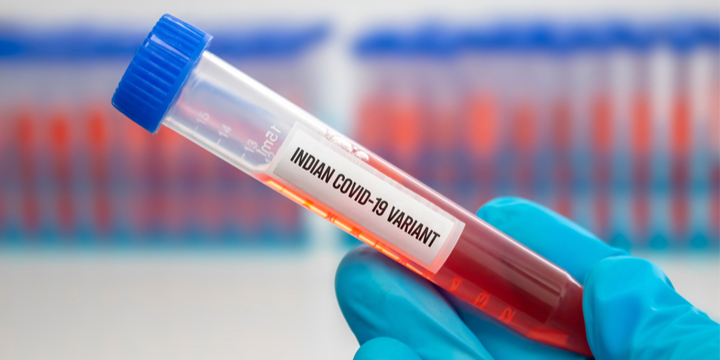Good news for the vaccinated! In people who have received two doses of the Pfizer vaccine, the antibodies are effective against the English variant, and slightly less effective against the Indian variant studied. This is the conclusion of the work of the Institut Pasteur, published on May 27 on the pre-publication site BioRxiv.
According to Rémi Salomon, chairman of the AP-HP medical commission, the Indian variant could replace the British variant in France. It is therefore crucial to know the effectiveness of the different vaccines on the Indian variant.
Same scenario in UK ???????? that we experienced in March when B.1.1.7 replaced the previous strain because it is more transmissible but: 1 / we are not in UK but it could happen here in the next few weeks, 2 / we are more and more to be vaccinated BUT ..
1 / 2⤵️ https://t.co/Iwg4IslOQI– Rémi Salomon (@RemiSalomon) May 30, 2021
In addition, the Institut Pasteur specifies that the progression of the Indian variant has been very rapid in the United Kingdom. This phenomenon could therefore be reproduced in France, since the country has experienced a similar evolution with the British variant.
Read also: Covid: the Indian variant classified as “worrying” detected in 44 countries
Efficient in the laboratory
For their study, researchers at the Institut Pasteur took the Indian variant from patients returning from India, then they observed the behavior of this variant in the face of different vaccines.
Result: despite “a slightly reduced efficacy according to laboratory tests, the Pfizer vaccine is probably protective” in real conditions, reassures Olivier Schwartz, co-author of the study and director of the virus and immunity unit at the Institut Pasteur (Paris).
To read also: Pfizer vaccine: a third dose to counter the variants?
An insufficient dose of AstraZeneca
The researchers also tested the effectiveness of the AstraZeneca vaccine on these variants, but only on people vaccinated with a single dose of the British vaccine. For this vaccine, they did not have “access to samples of vaccinated with two doses” at the time of the study, Olivier Schwartz told AFP.
The results of the study, carried out with French university hospitals, show that a dose of the AstraZeneca vaccine, however effective against the English variant, “works very little against the Indian and South African variants”. A single dose of this vaccine therefore appears “little or not at all effective” against the Indian variant, underlines the researcher.
A very disturbing variant
The Indian variant (B.1.617), detected in India in October 2020, has since diffused to many other countries, including the United Kingdom. It contains certain mutations that can increase its potential for immune escape, that is, its ability to reduce the effectiveness of antibodies generated by vaccines.
The researchers specifically studied version B.1.617.2 of the Indian variant, which appears to be more transmissible than the other two versions. Recently, it has also been detected in around ten countries.
Antibody resistance
“We show that this faster-spreading variant has acquired partial resistance to antibodies,” explains Schwartz. For example, he continues, “the sera of patients who had Covid-19 and collected up to 12 months after symptoms as well as people who received the Pfizer vaccine remain neutralizing, but are 3 to 6 times less potent against (Indian variant) B.1.617.2 compared to B.1.1.7 “(English variant).
 Cherry tomatoes contaminated with salmonella: 92 sick and 1 dead
Cherry tomatoes contaminated with salmonella: 92 sick and 1 dead  A better coaching method can make a person grow
A better coaching method can make a person grow  What is the method to prevent diabetes in children?
What is the method to prevent diabetes in children?  What are the effective factors in causing stomach ulcers?
What are the effective factors in causing stomach ulcers?  Why do embarrassing memories seem to appear at night?
Why do embarrassing memories seem to appear at night?  The amazing link between SARS-CoV-2 infection and newly started diabetes
The amazing link between SARS-CoV-2 infection and newly started diabetes  WHO says monkey pox is not a global emergency right now
WHO says monkey pox is not a global emergency right now  Single cell RNA sequencing uncovers new mechanisms of heart disease
Single cell RNA sequencing uncovers new mechanisms of heart disease  Hepatitis of unknown origin: 3 new deaths and 228 cases worldwide
Hepatitis of unknown origin: 3 new deaths and 228 cases worldwide 